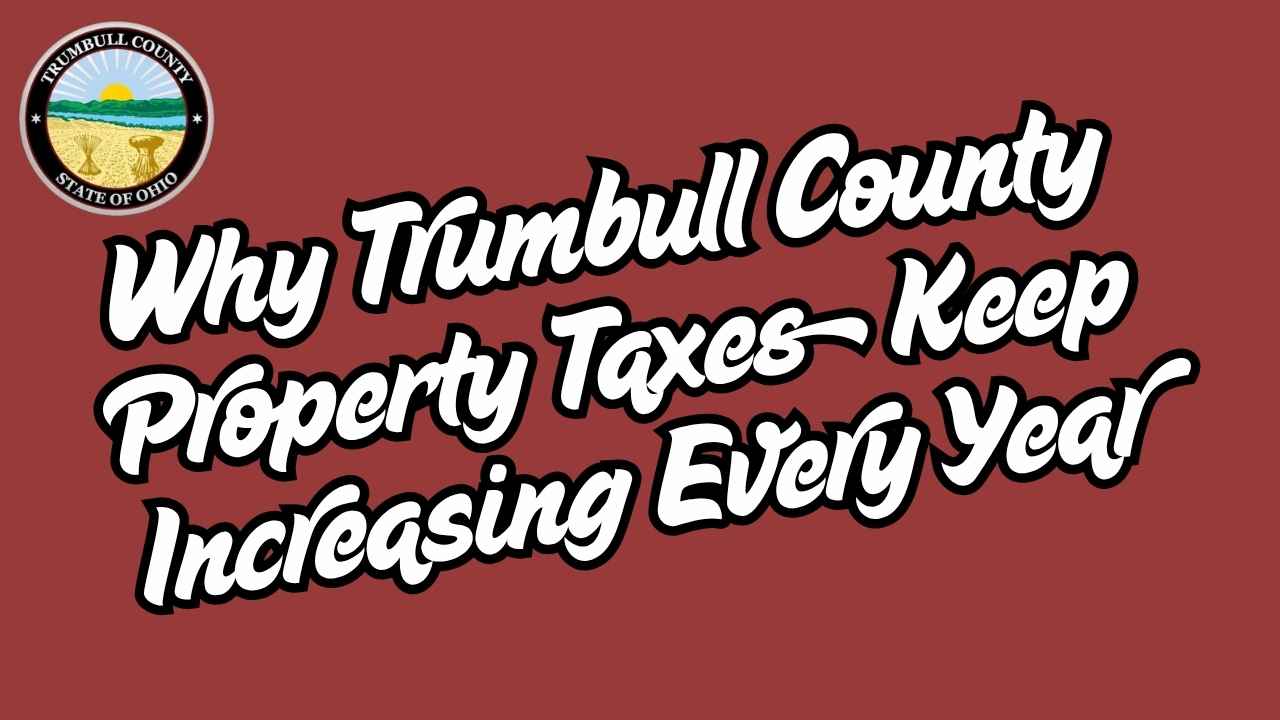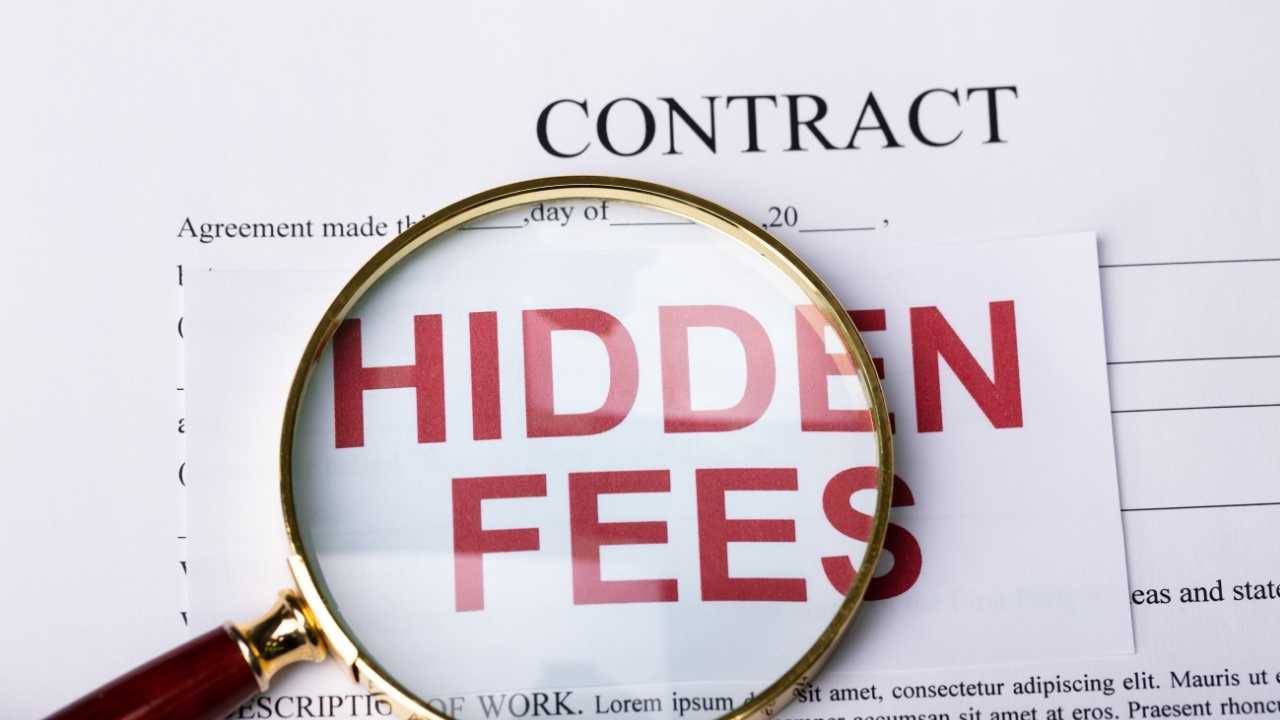Property taxes in Trumbull County, Ohio, go up for several reasons. State-mandated reappraisals, voter-approved levies, and rising property values are key factors. The Trumbull County Auditor updates property values every six years to match the market.
This update can lead to higher tax bills. Levies for schools, municipal services, and county operations also add to the annual increase.
Property Taxes in Trumbull County
Property taxes fund important services like schools, police, and fire departments. In Trumbull County, taxes are based on a property’s assessed value, which is 35% of its market value. The Trumbull County Auditor ensures these assessments are fair and accurate.
The tax rate, measured in mills, is applied to the assessed value. One mill equals $1 per $1,000 of taxable value. For example, a $100,000 home has a taxable value of $35,000, and at 69.5 mills, the tax is $2,432.50 annually.
Market changes, like rising home values, affect tax bills. When property values go up, tax bills often increase, even if the tax rate doesn’t change. This is a main reason for yearly tax hikes in Trumbull County.
The Role of the Trumbull County Auditor
The Trumbull County Auditor, Martha Yoder, is in charge of assessing property values. Ohio law requires a full reappraisal every six years and a triennial update to reflect market changes. The most recent reappraisal started in 2021 and ended in 2023, affecting 2024 tax bills.
The auditor doesn’t set tax rates or raise taxes. Instead, they calculate property values based on sales data, neighborhood trends, and physical characteristics. These valuations are then used by the county treasurer to generate tax bills.
Residents can check their property’s tentative value on the auditor’s website at Trumbull County Auditor’s Office. If you disagree with the valuation, you can request an informal hearing to present evidence like recent sales or appraisals.
Why Property Values Are Rising in Trumbull County
Trumbull County has seen significant property value increases due to a strong real estate market. Home prices surged from 2021 to 2022 as demand outpaced supply, a trend seen across Ohio. The 2023 reappraisal reflected these market shifts, with some properties increasing by 30% or more.
Rising values are driven by factors like low inventory, high demand, and improvements in local amenities. For example, neighborhoods with new schools or infrastructure often see higher appraisals. These increases directly affect the taxable value, leading to higher tax bills.
The auditor’s office uses comparable sales data to determine values. If similar homes in your area sold for more, your property’s market value likely increased, even without physical changes to your home.
How Levies Contribute to Tax Increases
Levies are a major factor in rising property taxes. In Trumbull County, voters approve levies for schools, emergency services, and county operations. In November 2023, 23 levies were on the ballot, and those passed directly increased tax rates.
School district levies make up the largest portion, often 40 to 50 mills. Municipal services like police and fire add 10 to 15 mills, while county operations contribute another 10 to 15 mills. These rates fluctuate based on voter approval and local budget needs.
For example, a new school levy might add 5 mills, increasing taxes by $175 annually for a $100,000 home. Residents can track levy details on the Trumbull County Auditor’s Tax Rates page.
State-Mandated Reappraisals and Their Impact
Ohio law says counties must reappraise properties every six years. This keeps values in line with the market. Trumbull County did this in 2023, starting in 2021.
They looked at every property outside. This makes sure everyone pays fairly. But, it can also mean higher taxes.
The goal isn’t to raise taxes. It’s to show what properties are worth now. If homes go up in value, so do taxes. The Ohio Department of Taxation makes these final decisions.
People can challenge their property’s value. They can do this through the Board of Revision (BOR). The BOR has the county auditor, treasurer, and commissioners. They look at complaints from January 2 to March 31, 2025.
Inside Millage vs. Voted Millage
Trumbull County has two kinds of taxes: inside and voted. Inside millage, up to 10 mills, changes with property values. Voted millage is what people approve for specific services.
Voted millage rates stay the same unless voters say yes to more taxes. For example, if values go up 30%, rates might go down. But inside millage can raise taxes.
This can confuse people. Rising values can mean higher taxes, even with stable voted millage rates. Knowing this helps understand why taxes go up each year.
Breakdown of Trumbull County Tax Rates (2023)
| Component | Millage Range | Purpose | Impact on $100,000 Home |
|---|---|---|---|
| School District Levies | 40–50 mills | Funds schools | $1,400–$1,750 |
| Municipal Services | 10–15 mills | Police, fire, roads | $350–$525 |
| County Operations | 10–15 mills | County programs | $350–$525 |
| Total | ~69.5 mills | Combined services | ~$2,432.50 |
Note: Based on 35% assessed value ($35,000 for a $100,000 home).
How to Check and Appeal Your Property Valuation
People can see their property’s value on the Trumbull County Auditor’s website. Just use your address or parcel number. The 2023 values came out in October 2023, and tax bills were sent in January 2024.
If you think your value is wrong, you need to act fast. Informal hearings were in October and November 2023. But you can file a formal appeal with the Board of Revision from January 2 to March 31, 2025.
Bring proof like recent sales, appraisals, or photos to support your appeal. Appeals are about the value, not taxes. If you win, your tax bill could go down. For more information, visit the Trumbull County BOR.
Economic Factors Driving Tax Increases
More than just reappraisals and levies, the economy plays a big role in rising taxes. Inflation makes public services more expensive, leading to new levies. For example, higher costs for school staff or road maintenance might mean tax hikes.
The housing market in Trumbull County is also influenced by national trends. Low interest rates in 2021–2022 made homes more affordable, raising prices. Even with higher rates in 2023, demand stayed strong, keeping prices up.
These market changes are seen in the auditor’s valuations, affecting your tax bill. Keeping up with local market trends can help you prepare for changes.
How to Budget for Rising Property Taxes
Planning is key when taxes go up. Use the Trumbull County Tax Estimator at trumbullcountyauditor.org to estimate your taxes. Just enter your property’s details for an accurate figure.
Save money each month for your biannual tax payments. For a $2,500 annual bill, set aside $208 monthly. Automatic payments through the treasurer’s office can help avoid late fees.
If taxes are too high, look into exemptions like the Homestead Exemption for seniors or disabled veterans. Call the auditor’s office at 330-675-2420 for more information.
Common Misconceptions About Property Taxes
Many think the Trumbull County Auditor raises taxes, but that’s not true. The auditor just assesses property values. Tax rates are set by voter-approved levies and state law.
Some believe appealing a valuation will always lower taxes, but it’s not that simple. Understanding these myths can help you better navigate the tax system.
Property Tax Payment Options in Trumbull County
| Payment Method | Details | Pros | Cons |
|---|---|---|---|
| Online | Pay via Trumbull County Treasurer | Convenient, reflects in 48 hours | Requires internet access |
| Send check to 5866 Main Street, Trumbull, OH | U.S. postmark honored | Risk of mail delays | |
| In-Person | Visit Treasurer’s Office, 9 AM–5 PM | Immediate confirmation | Long lines in peak months (July, January) |
How Legislation Affects Property Taxes
Legislation in Columbus can change Trumbull County’s tax rates and valuations. In 2023, Auditor Martha Yoder said state laws could adjust property values, affecting 2024 taxes. These changes are beyond the auditor’s control.
For example, new bills might change how inside millage is calculated or offer tax relief for some groups. Stay updated by checking the Ohio Department of Taxation for the latest news.
Residents can also reach out to their state representative to share concerns about tax policies. Talking to local officials ensures your voice is heard.
Tips to Manage and Reduce Your Tax Burden
While you can’t avoid property taxes, you can take steps to manage them:
- Appeal Your Valuation: File a complaint with the Board of Revision if your property’s value seems too high.
- Apply for Exemptions: Check if you qualify for the Homestead Exemption or veteran’s exemptions.
- Monitor Levies: Vote thoughtfully on levies, as they directly increase tax rates.
- Use the Tax Estimator: Plan ahead with the online tool to avoid surprises.
Contact the auditor’s office at 330-675-2895 for personalized assistance or to schedule a hearing.
Why Transparency Matters in Trumbull County
The Trumbull County Auditor emphasizes transparency in the valuation process. Property owners can access detailed tax rate information and valuation data online. The auditor’s office also provides resources like the “Know Your Home Value” guide to explain reappraisals.
Transparency helps residents understand why taxes increase and how to address concerns. By staying informed, you can make better financial decisions and engage with the process.
Looking Ahead: Property Taxes in 2025 and Beyond
In 2025, Trumbull County property taxes will likely continue to rise due to ongoing market trends and new levies. The next triennial update, expected in 2026, will further adjust property values. Homeowners should monitor market conditions and local ballots.
Using tools like the Trumbull County Tax Estimator and staying active in community votes can help you prepare. Check the auditor’s website regularly for updates on valuations and tax deadlines.
Conclusion: Stay Informed and Proactive
Trumbull County property taxes keep increasing due to rising property values, voter-approved levies, and state-mandated reappraisals. The Trumbull County Auditor ensures fair assessments, but market trends and local votes drive tax hikes. To manage your tax burden, check your property’s value, explore exemptions, and use the county’s online tools to plan ahead.
By staying informed and proactive, you can better navigate rising taxes and make informed financial decisions. Visit trumbullcountyauditor.org to start planning today.




